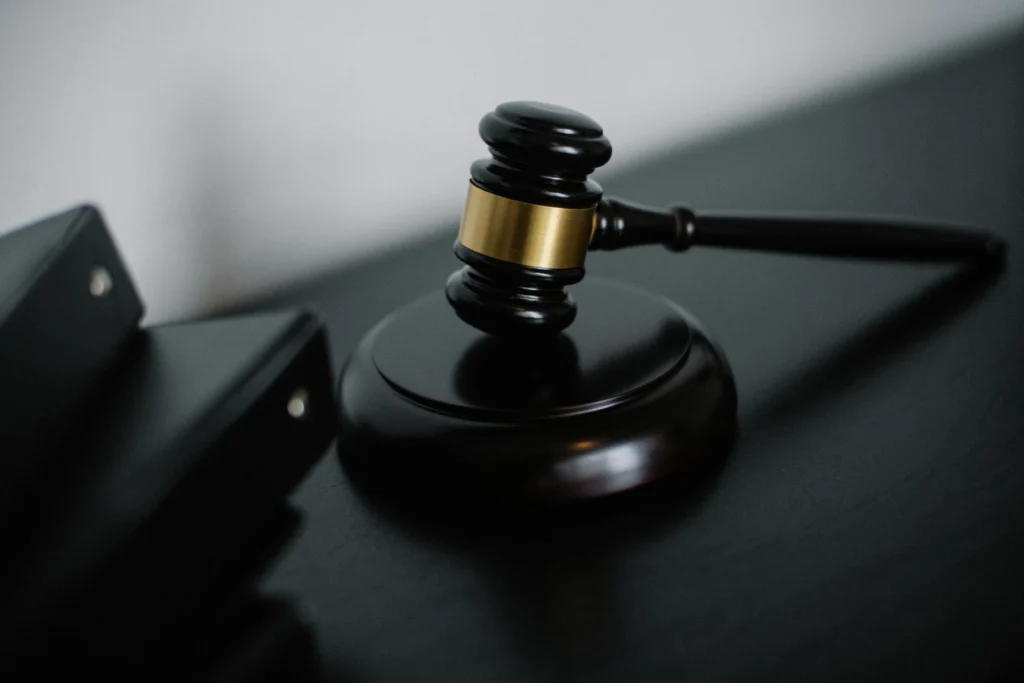A trial lawyer is an attorney who represents clients in court. While many legal matters are resolved through negotiation or settlement before reaching trial, some disputes continue to the courtroom. Trial lawyers are the professionals who guide clients through that process.
Their role often includes: preparing documents and evidence so a case is organized, speaking for clients in front of a judge or jury, explaining courtroom rules and procedures, and helping clients feel more at ease in an unfamiliar setting. The American Bar Association notes that trial lawyers must be skilled at both case preparation and in-court advocacy, blending behind-the-scenes work with public presentation (American Bar Association, Trial Practice Resources).

How Trial Lawyers Differ From Other Lawyers
Many lawyers focus on drafting contracts, managing transactions, or negotiating disputes outside of court. Trial lawyers, however, emphasize courtroom advocacy. According to Cornell Law School’s Legal Information Institute, their practice involves presenting arguments, questioning witnesses, and ensuring procedural fairness (Trial Process Overview).
This makes their role distinct: they must be comfortable with unpredictability, quick thinking, and communication in a public setting – qualities not every lawyer needs in their day-to-day work.
Types of Cases They Handle
Trial lawyers appear in both civil and criminal trials.
- Civil trials may involve disputes over contracts, personal injury lawsuits, family law issues like divorce or custody, and employment conflicts.
- Criminal trials determine whether an individual is guilty of a crime, from minor misdemeanors to serious felonies. Trial lawyers here include both prosecutors (representing the government) and defense attorneys (representing the accused).
- They may also be involved in specialized matters such as probate disputes (wills, estates), consumer claims, or property disagreements.
As the U.S. Courts explain, civil cases alone make up a large portion of federal trial activity, showing that trials are not limited to criminal law (Civil Cases and the Basics of a Trial).
The Trial Process: Step by Step
According to the U.S. Courts, most trials follow a set sequence that ensures fairness and transparency.
- Pleadings – Initial documents are filed by each side outlining their claims.
- Discovery – Evidence is exchanged, and depositions are taken.
- Motions – Lawyers ask the court to decide issues such as whether certain evidence will be admitted.
- Jury Selection -In jury trials, attorneys question potential jurors to ensure impartiality (voir dire).
- Trial – Includes opening statements, presentation of evidence, witness questioning, and closing arguments.
- Verdict – The decision is delivered by a judge or jury.
- Appeal – In some cases, the decision may be reviewed by a higher court.
This structure is consistent across most U.S. courts, though local rules may vary.
Skills of a Trial Lawyer
Nolo, a widely used legal information site, highlights that trial lawyers need a blend of legal knowledge, strategy, and public communication (Do I Need a Trial Lawyer?). They must be able to organize large amounts of information, think ahead about the opposing side’s arguments, and respond quickly when the unexpected happens in court.
In addition, they need the ability to translate legal concepts into plain language so that judges and juries – who may have no legal training – can understand. These skills set trial lawyers apart from attorneys who work primarily outside the courtroom.
Common Misconceptions
Many people believe that every case ends up in court. In reality, most are resolved before trial, often because settlement is faster and less costly (Cornell LII, Trial Process Overview). Another common myth is that trials are full of drama, like those shown on television. Real trials proceed slowly, with strict rules about evidence and procedure. Finally, trials are not limited to criminal cases. Civil disputes – ranging from contract disagreements to family law cases – are also regularly heard in court (U.S. Courts, Civil Cases and the Basics of a Trial).
Historical Context
The right to a trial is a cornerstone of the U.S. legal system. The Sixth Amendment guarantees a speedy and public trial in criminal cases, and the Seventh Amendment provides for jury trials in many civil disputes. The Library of Congress notes that these amendments were heavily influenced by English common law traditions (Constitution of the United States: 6th and 7th Amendments).
This historical foundation underscores the importance of trial lawyers today. They carry forward a centuries-old tradition that ensures disputes are resolved not behind closed doors but in a public and structured forum.
Why Trial Lawyers Matter
Even when a case does not go to trial, trial lawyers play an important role in the justice system. Their preparation and readiness often encourage settlement, because the other side knows the case is capable of moving into court. When disputes cannot be settled, trial lawyers ensure that each side has the opportunity to present evidence and arguments in a neutral setting.
By guiding clients through a process that can otherwise be confusing and intimidating, trial lawyers help maintain fairness and uphold the protections guaranteed by the U.S. Constitution.
At Pierce & Kwok LLP, we are committed to guiding you every step of the way – from preparation to verdict. If you’re facing a serious dispute or just want to understand your options, we’re here to talk.
📞 Call us at (212) 882-1752
💻 Visit us at piercekwok.com
Sources / Bibliography
- American Bar Association. Trial Practice Resources. Available at: https://www.americanbar.org/groups/litigation/committees/trial-practice/
- Cornell Law School Legal Information Institute. Trial Process Overview. Available at: https://www.law.cornell.edu/wex/trial
- U.S. Courts. Civil Cases and the Basics of a Trial. Available at: https://www.uscourts.gov/about-federal-courts/types-cases/civil-cases
- Nolo.com. Do I Need a Trial Lawyer? Available at: https://www.nolo.com/legal-encyclopedia/do-i-need-trial-lawyer.html
- Library of Congress. The Constitution of the United States: 6th and 7th Amendments. Available at: https://www.loc.gov/